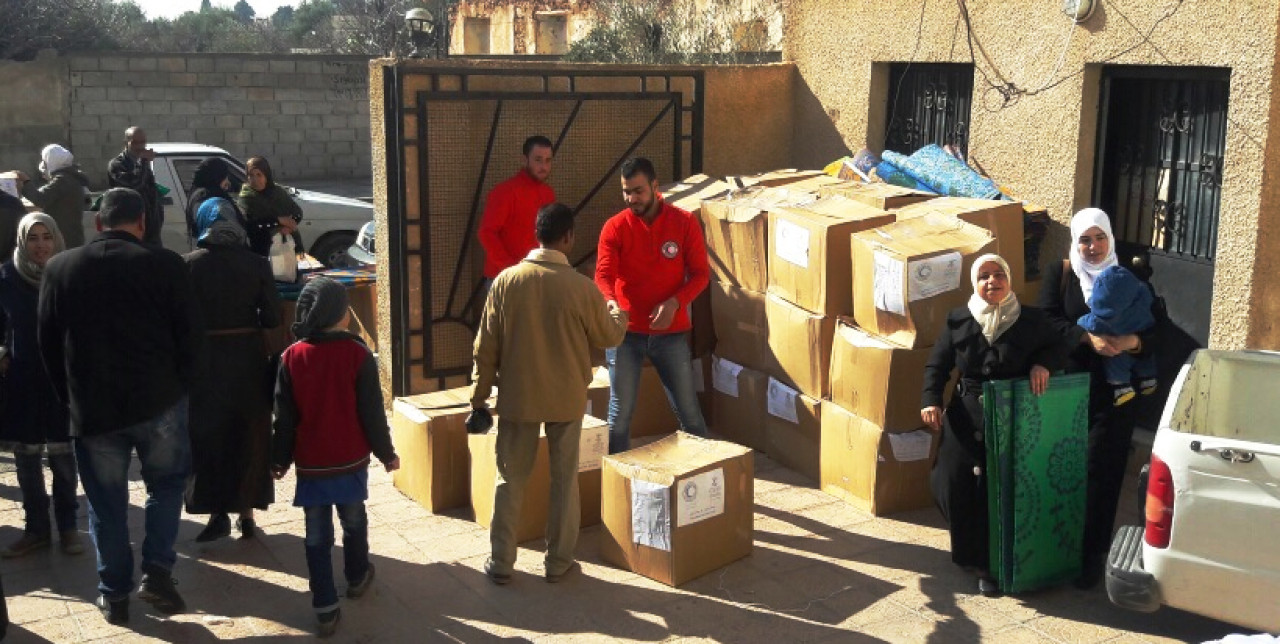15-03-2018 | di COOPI
Gardening kits for vulnerable communities in Damascus area
During the last 10 months, the COOPI staff in Syria has distributed 650 gardening kits to displaced and vulnerable families and communities in the rural Damascus area, each including different winter and summer seeds, tools and fertilizers, with the purpose of guaranteeing adequate food consumption and variety. Amongst beneficiaries, a special focus is put on: women-headed households; families with more than 4 underage members and/or with children between 0 and 5 years of age; families including persons with special needs, such as those affected by chronic diseases and/or disability, pregnant or breastfeeding women. Conjunctly, these account for 31% of the total population.
The intervention is only one of the several carried out by COOPI within the project “Food support in response to the Syrian crisis in metropolitan Damascus area”, financed by AICS (the Italian Agency for Development Cooperation) and aimed to satisfy the needs of beneficiary populations through the recovery of food security.
Indeed, in a region where basic foods have almost tripled in price and the restrictions posed on the circulation of people and goods caused by checkpoints and military-encircled areas threaten the livelihoods of local families, the distribution of natural and sustainable food sources is essential for the survival of a large part of the population affected by the problem, whose number is estimated at 18,000 beneficiaries.
The kits (550 for families and 100 for the communities), containing local varieties of seeds (spinach, faba beans, peas, parsley, raddish...), will provide 3,250 Syrians with sufficient quantities of food for the next two years. In the meanwhile, COOPI has also been organizing mentoring courses and technical training held by agronomists on the setting up of gardens, during which the participants are not only given the opportunity to learn about the correct management of the received material, but also about seedlings, composting, the arrangement of plants and sustainable irrigation techniques. Such experience is mediated by a learning-by-doing and participatory approach, also inclusive of final self-assessment done by beneficiaries about their training and the activities carried out. In the long term, acquiring this know-how will not only allow them to optimize the resources at disposal (and therefore to avoid wasting them), but also and more importantly to become independent in their management, as according to project plans.
Lastly, COOPI has planned the distribution of 1500 additional gardening kits (one per family) in the upcoming 2 months, so as to reach more than 7,500 beneficiaries in Qatana, Sabura, Artouz and Khen Elshish areas.




 Syria
Syria